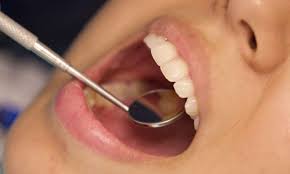AĞIZ SAĞLIĞINA DİKKAT ETMEK GEREKİYOR Ağız içi hijyenin bozulması bazı kanserleri tetikleyebilir
AĞIZ SAĞLIĞINA DİKKAT ETMEK GEREKİYOR
Ağız içi hijyenin bozulması bazı kanserleri tetikleyebilir
- İngiltere de 469.000 kişi üzerinde yapılan, altı yılık gözlemsel çalışmaya göre
- Diyabet, inme ve kardiyak hastalıkların gelişiminde bir faktör olarak kabul edilen kötü ağız içi bakım ve hijyen sorunu olanlarda kanser gelişme riski araştırılmış.
- Bu çalışmaya göre, ağız içi hijyen sorunu olan bireylerde, hepatoselüler(karaciğer) kanser gelişimi daha yüksek saptanmış.
- Diğer gastrointestinal kanserler arasında bir artış saptanmamış (mide, pankreas, bağırsak)
- Ağız içi hijyen bozukluğu olanlar, daha genç, kadın cinsiyeti, düşük sosyoekonomik düzey ve düşük meyve ve sebze tüketimi ile ilişkili saptanmış.
- Ağız içi hijyen bozukluğunun nasıl kanser artırdığına dair yapılan yorumlar, ağız içi ve bağırsak florasının bozulmasının kanseri tetikleyebileceği varsayılıyor
Sonuç: İnsan sağlığını bir bütün olarak düşünülmelidir. Sadece beslenme, spor, düzenli uyku ve erken tarama ve teşhis dışında, ağız ve bağırsak florasını etkileyen tüm zararlı girişimlerden uzak durmak lazım.
KAYNAK:
Link Between Poor Oral Health and Increased Liver Cancer Risk
By The ASCO Post
Posted: 6/24/2019 11:47:44 AM
Last Updated: 6/24/2019 11:47:44 AM
Key Points
- In site-specific analysis, an increased risk of hepatobiliary cancers was observed in those with self-reported poor oral health, which was stronger for hepatocellular carcinoma.
- Participants with poor oral health were more likely to be younger, female, living in deprived socioeconomic areas, and to have consumed less than two portions of fruit and vegetables per day.
Poor oral health is associated with an increased risk of hepatocellular carcinoma, according to new research published by Jordão et al in the United European Gastroenterology Journal.
Methods
“Poor oral health has been associated with the risk of several chronic diseases, such as heart disease, stroke, and diabetes,” explained lead study author Haydée W.T. Jordão, PhD, from the Centre of Public Health at Queen’s University Belfast, in a press release. “However, there is inconsistent evidence on the association between poor oral health and specific types of gastrointestinal cancers, which is what our research aimed to examine.”
The study analyzed a large cohort of over 469,000 people in the U.K. and investigated the association between oral health conditions and the risk of a number of gastrointestinal cancers, including liver, colon, rectal, and pancreatic cancer. Models were applied to estimate the relationship between cancer risk and self-reported oral health conditions, such as painful or bleeding gums, mouth ulcers, and loose teeth.
Results
Although no significant associations were observed between the risk of the majority gastrointestinal cancers and poor oral health, a substantial link was found for hepatobiliary cancer. Among the 469,628 participants, 4,069 developed gastrointestinal cancer during the (average) 6-year follow up. In 13% of these cases, patients reported poor oral health. Participants with poor oral health were more likely to be younger, female, living in deprived socioeconomic areas, and to have consumed less than two portions of fruit and vegetables per day.
In site-specific analysis, an increased risk of hepatobiliary cancers was observed in those with self-reported poor oral health (hazard ratio [HR] = 1.32, 95% confidence interval [CI] = 0.95–1.80), which was stronger for hepatocellular carcinoma (HR = 1.75, 95% CI = 1.04–2.92).
The biologic mechanisms by which poor oral health may be more strongly associated with liver cancer, rather than other digestive cancers, is currently uncertain. One explanation is the potential role of the oral and gut microbiome in disease development.
“The liver contributes to the elimination of bacteria from the human body,” said Dr. Jordão. “When the liver is affected by diseases, such as hepatitis, cirrhosis, or cancer, its function will decline, and bacteria will survive longer and therefore have the potential to cause more harm. One bacterium, Fusobacterium nucleatum, originates in the oral cavity, but its role in liver cancer is unclear. Further studies investigating the microbiome and liver cancer are therefore warranted.”

